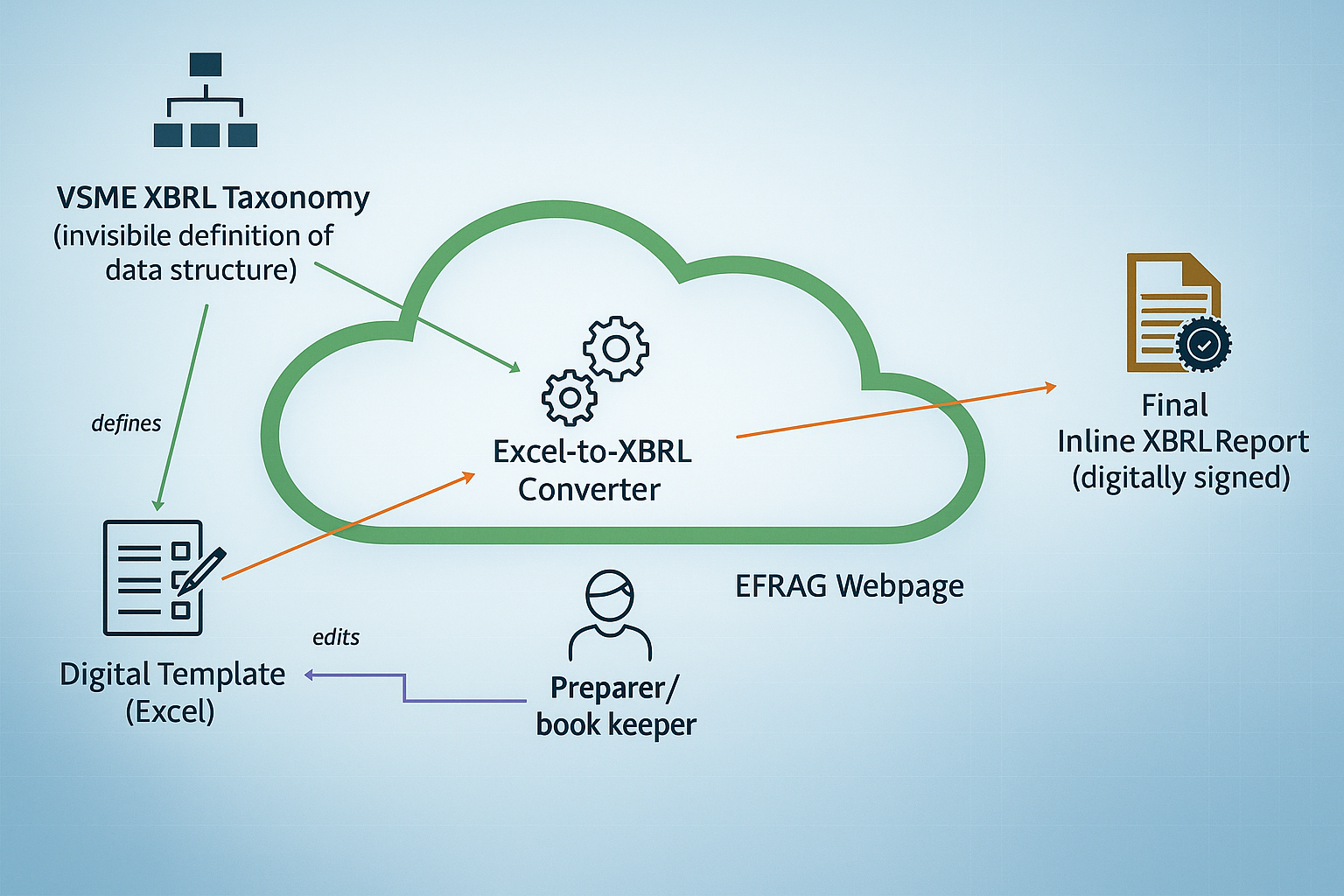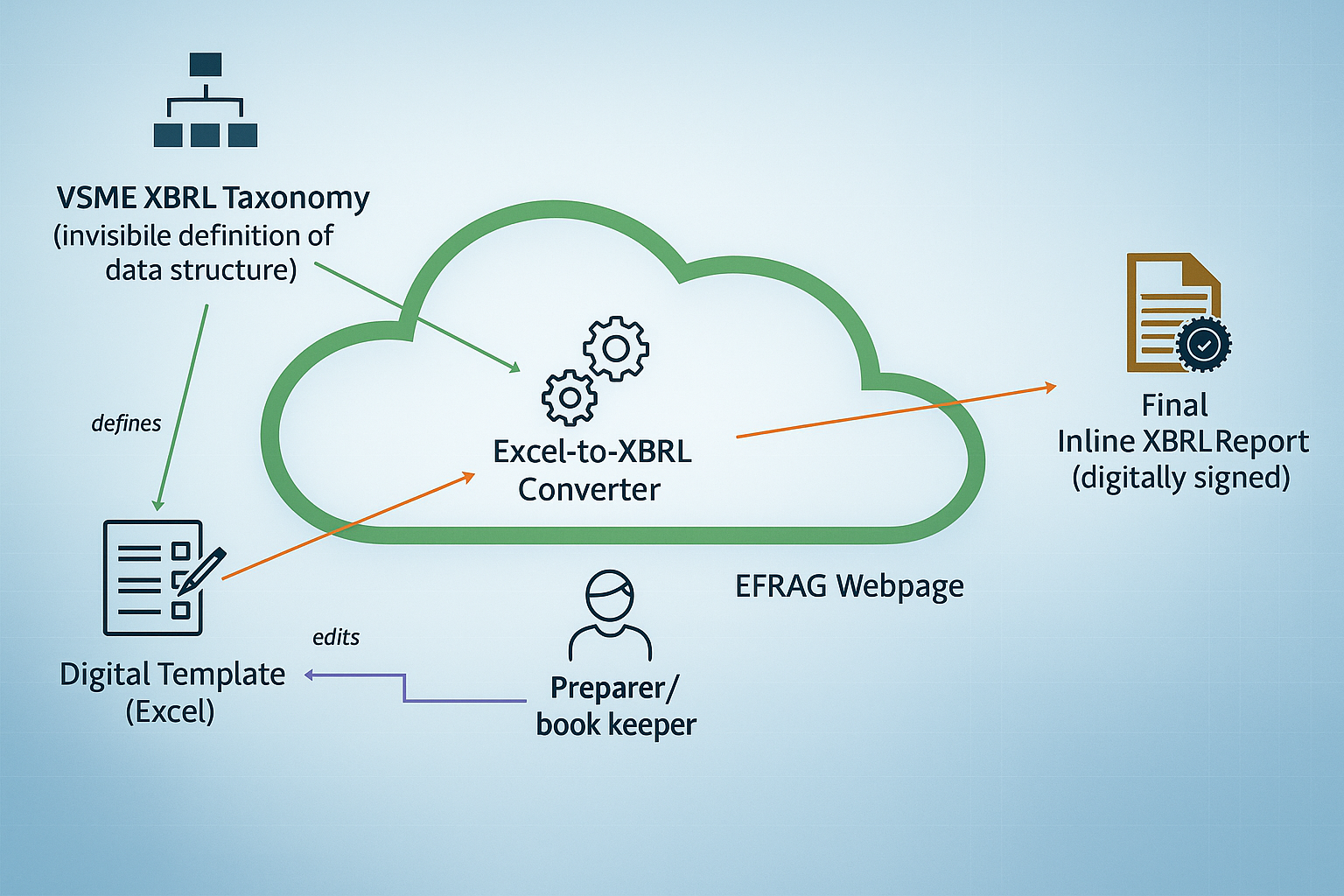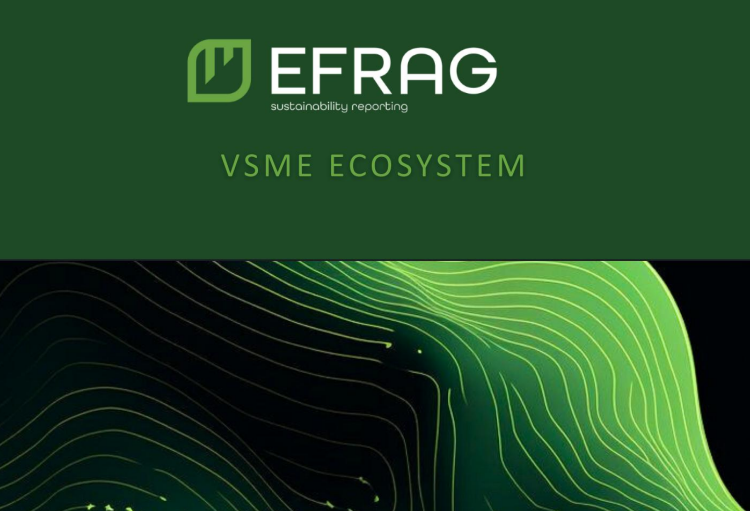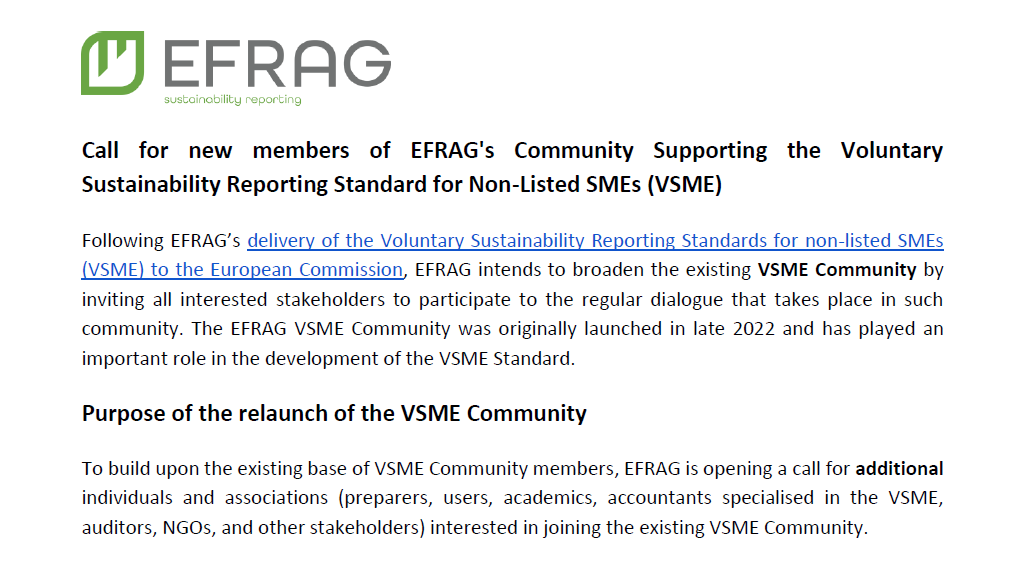EFRAG Expands the VSME Ecosystem with a Multilingual Digital Template
EFRAG has released an updated version of the VSME Digital Template and XBRL Taxonomy to further support simplified sustainability reporting for small and medium-sized enterprises.

In October 2025, EFRAG released an updated version of the VSME Digital Template and XBRL Taxonomy. The update reflects the content of the European Commission’s VSME Recommendation issued in July 2025 and marks a significant step in supporting voluntary sustainability reporting for small and non-listed enterprises across the EU. The release is part of the broader VSME ecosystem developed to simplify ESG disclosures and reduce administrative burden for SMEs responding to increasing sustainability data demands from stakeholders.
Language functionality and localisation efforts
A core feature of the October release is the multilingual functionality embedded in the digital template. It now allows users to switch between languages and generate Inline XBRL reports in Spanish, Polish, Lithuanian and Portuguese in addition to English. These translations were initially generated using an AI-based tool trained on official VSME translations from the Official Journal. However, EFRAG has clarified that these drafts are subject to review by national standard setters. Ten jurisdictions have committed to reviewing or providing translations. Additional languages are expected to be integrated into future template releases with localisation updates planned for the end of October and November 2025. Certain standardised lists such as NACE codes and pollutants are currently excluded from translation.
Functional updates in the digital template
Beyond translation, the October version introduces minor but relevant technical adjustments. These include alignment with the European Commission’s revised wording in multiple cells, validation formula corrections and usability improvements. A conditional applicability trigger was added to one of the social disclosure fields and the gender diversity ratio formula within governance disclosures was corrected. The update also incorporates improved metadata handling and a clearer interface for verifying completion status before conversion.
The template maintains its original design logic including the structure based on disclosure topics, colour-coded guidance and pre-filled hidden rows for open lists. It continues to support only one reporting period at a time and does not allow comparative reporting across periods. While the tool facilitates entry and conversion, it does not include automated GHG calculation, comparative data processing or reporting for multiple entities within one file. Suggestions for enhancements such as digital signature support or integration with national repositories remain under consideration for future updates.
Taxonomy revisions aligned with the EC Recommendation
EFRAG has also updated the VSME XBRL Taxonomy to align with the latest legislative references and structural elements of the VSME Recommendation. The taxonomy now includes labels in the supported additional languages and has been adjusted to rely solely on the 2024 edition of the XBRL Data Type Registry. Several taxonomy concepts were renamed for clarity and consistency and data types for certain fields such as gender ratios were corrected. All references to waste classifications were updated to reflect current EU legislation.
The updated taxonomy also maintains consistency with the digital template structure including defined measurement units, standardised field naming and integration with the EFRAG-developed Excel-to-XBRL converter. The taxonomy does not include preparer-side extensions but guidance is being developed for jurisdictions and financial institutions interested in building add-ons.
Converter upgrades and localisation support
The Excel-to-XBRL converter has been updated to support multilingual templates. It now detects the locale used within the template and applies appropriate numeric formatting and label selection. Additional enhancements include the ability to display unchecked boolean fields, define report title and subtitle and optionally include a corporate logo. Numerical data now respects the original Excel precision and localisation of decimal points and grouping separators is supported.
These technical upgrades aim to reduce the effort required to generate valid digital reports in line with EFRAG’s goal of enabling template-based data entry and machine-readable disclosures without additional tagging.
Strategic implications for SME reporting
EFRAG’s updated tools reinforce the ecosystem built around the VSME standard. By providing an open-source, multilingual and technically robust reporting infrastructure, the initiative contributes to reducing the fragmentation of ESG information requests directed at SMEs. While the tools are not intended to compete with commercial platforms, they set a reference implementation for how VSME disclosures can be digitised and standardised at scale.
As translation coverage expands and stakeholders adopt the tools, further harmonisation in ESG reporting practices among SMEs is expected. Limitations remain including the absence of support services and some usability challenges inherent to the Excel-based format. These factors suggest that the ecosystem’s effectiveness will partly depend on further market uptake, national-level integration and continued technical refinement.
All links to the tools and documents mentioned are provided below.
Explanatory Note
VSME Digital Template and Explanatory Note (PDF), published on 3 October 2025.
VSME Digital Template
VSME Digital Template Version 1.1.0 (XLSX, 500KB), published on 3 October 2025.
Digital Template to XBRL Converter



